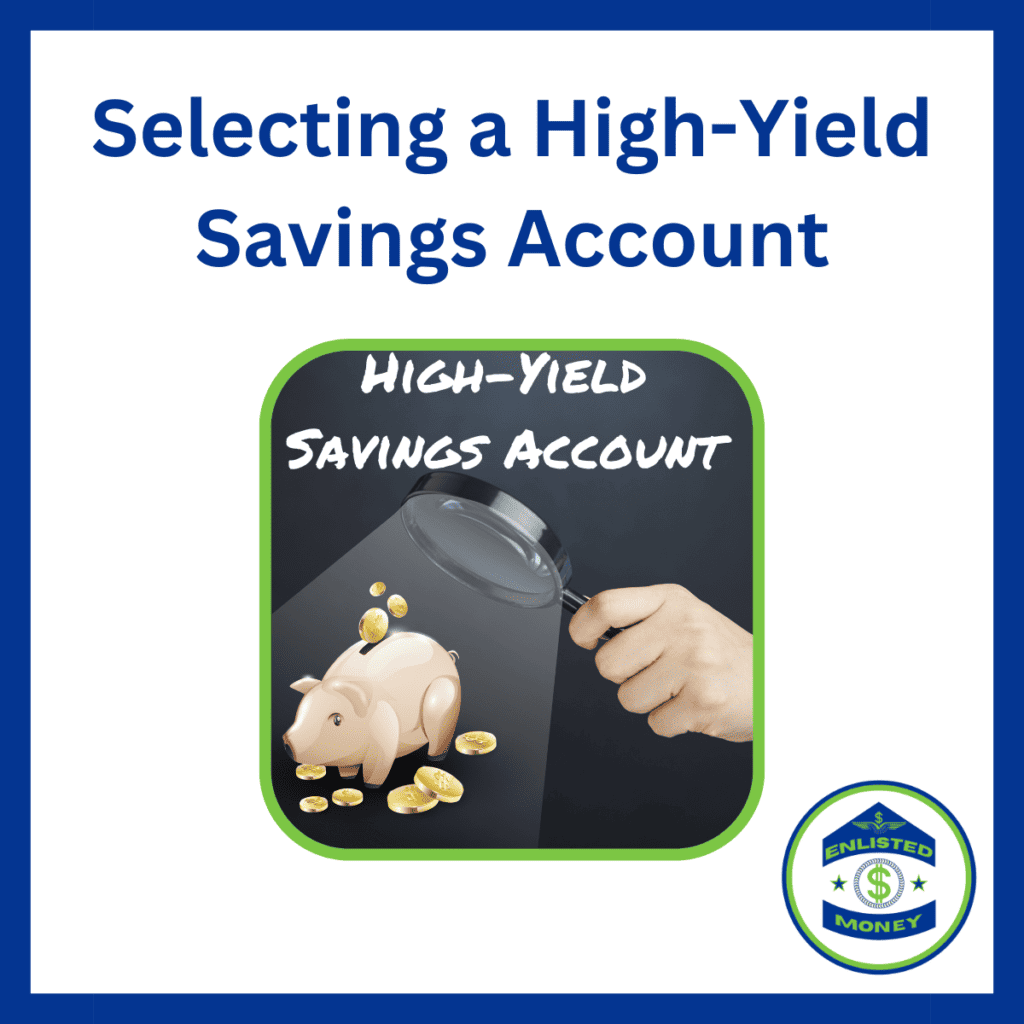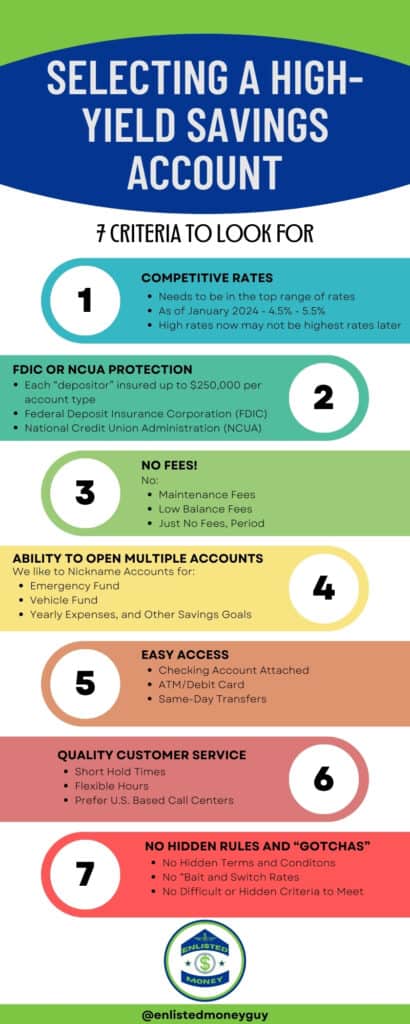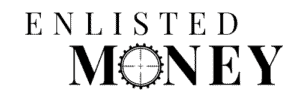
It’s been years, actually over a decade since we changed banks for our high-yield savings account (HYSA). But this year we’re making a switch.
I’m actually kind of embarrassed about it. Long story short, we were not valued as loyal customers and I refuse to stay with a bank that treats me unfairly.
A Quick Backstory and What Happened
Originally, we’d started our first high-yield savings account with a company called ING Direct. I’d spent quite a bit of time researching different banks and settled on ING Direct because they had great rates, I could easily open several accounts, nickname my accounts (this actually wasn’t that common 10+ years ago), and their customer service was great.
Fast forward, they were purchased by Capital One and rebranded as Capital One 360 Savings. Okay, no problem. Customer service was still great, rates were good (or so I thought), no worries. We were checking our accounts on Money Day this year and took a look at our statements. I noticed the interest rate on our accounts was 0.3% – not the 4.35% that Capital One shows on the site.
I called and they said I had a “legacy product” and would need to reopen my accounts in order to get the current rates. Needless to say, I was pissed! If I have to open brand new accounts, I’ll be opening them with a different bank.
Note: There’s actually a lawsuit regarding this case. I’ve contacted the firm to see what, if anything, can be done or if it’s worth my time to pursue it.
The hunt begins.
My Criteria for High-Yield Savings Accounts
I am very particular about my high-yield savings accounts – up to a point. I’m very aware of my tendency to get analysis paralysis. I’m a natural overthinker, but once I settle on a decision, I generally feel very confident about it.
There are a couple other reasons why I’m not too particular about some things but more particular about others. Chasing high rates or jumping on the “trendy” HYSAs can get you into trouble or end up not being quite as awesome as the marketing makes it seem.
So, What ARE My Criteria?
Because I tend to go overboard comparing, I have to set my criteria and not get too wrapped up in the tiny details. In reality, when I set clear criteria, there’s likely only a few banks that will fit the bill.
Here’s the main things I look for in a high-yield savings account:
- Competitive Rates
- FDIC or NCUA Protection
- No Fees!
- Ability to Open Multiple Accounts
- Easy Access
- Quality Customer Service
- No Hidden Rules and “Gotchas”
Like I said, I’m a little picky with my choice of bank, but it’s my money. I have a right to be picky!

The Screening Process
I pretty much go through the criteria I have in that exact order. I want good rates, all the functions, none of the fees, and no hidden tricks.
Competitive High-Yield Savings Rates
The HYSA needs to be in the top range of rates. Right now (January 2024), the absolute highest I can find is about 5.5% APY, so anything about 4.5% APY or higher, I’m good with. A 1% difference isn’t something to shake a stick at, but I’m not generally keeping a ton of cash on hand either.
To give you an idea, over the course of two years, $10,000 in a HYSA with a 4.5% APY will be worth $11,445.27 versus a HYSA at 5.5% which will have an ending balance of $11,793.78. This gives you a difference of a little over $300.
This IS significant, but you definitely don’t want to be chasing rates all the time or end up with a shady bank either. It’s highly likely that the highest rates now won’t be the highest rates later.
Depositor Insurance Notes and Information
Depositor insurance is kind of a gimme. However, banks will spin anything to make themselves seem a little better than someone else. Unless you’re going to have over $250,000 in cash, the only thing you need to know is your money is in an FDIC or NCUA insured bank.
Federal Deposit Insurance Corporation (FDIC) Coverage Amounts
The Federal Deposit Insurance Corporation (FDIC) is an independent government agency designed to protect your cash if your bank folds. Each “depositor” is insured up to $250,000 for each covered account type. In case you’re wondering, you are the depositor.
What About Credit Unions and the National Credit Union Administration (NCUA)?
Credit unions can be covered just like an FDIC bank. However, they’ll likely be a part of the National Credit Union Administration (NCUA) which also guarantees deposits up to $250,000.
The Bottom Line on FDIC or NCUA Coverage
Once you have more than $250,000 in cash, you’ll want to spread the money around. You could also use a service that spreads the money out between multiple banks to give you additional coverage. Better yet, you probably don’t want, or need, that kind of cash just sitting in a bank account.
This is important because banks do fold from time to time. As long as the bank is an FDIC or NCUA member, you’re good to go. Both institutions are federal institutions designed to protect you, the consumer. I check to make sure they’re covered, but that’s it.
No Fees for My HYSA!
I’m not paying monthly maintenance fees, low balance fees, or anything else. I just don’t like fees when it comes to online bank accounts. This is where reading all the terms and conditions comes in handy. There might be hidden fees if certain conditions aren’t met.
For instance, you may need to keep a certain balance, make so many transactions per month, set up direct deposit, etc. in order to avoid getting hit with a fee. Make sure you understand any of the criteria you need to meet. If you’re not okay with jumping though those hoops, look somewhere else.
Ability to Open Multiple Accounts
We nickname accounts for specific savings goals and purposes. This is a MUST for our mental accounting. We keep money in several different accounts for specific purposes such as our vehicle fund, emergency fund, yearly expenses fund, and holiday spending.
It’s very important that I can open and label these accounts so I can keep everything straight. It makes it way easier to talk about money with my wife when we can just say what pot of money we’re talking about.
Bottom line, it makes it easier to keep everything straight in my head and greatly simplifies our financial life.
Easy Access to My Money
I really prefer to have a checking account available at the same bank. This isn’t absolutely a deal breaker, but if I need my money, I don’t want to have to wait forever to get it. I like having a checking account at the same bank so I can easily transfer money over and use it if needed.
If there was another way to access the money quickly, like an ATM card, that would be okay too. However, it’s harder and harder to complete cash transactions anymore. This is totally up to you.
Quality Customer Service
I need to be able to get ahold of someone quickly and be able to get my questions answered. Bonus if whomever I’m talking to is in the U.S. Nothing personal, but I don’t trust the security of overseas call centers. I understand that customer service is a huge expense for any business, but when it comes to my money, I’m pretty particular.
I don’t expect to be able to call and immediately speak to someone, but if I’m on hold for longer than 10 to 15 minutes, that’s a problem. Having an online chat feature is nice too, but not necessary. Half the time those are just dumb bots that tell me to call anyway, so I’d be better off just calling in the first place.
No Hidden Rules and “Gotchas”
The “video” needs to match the “audio” per se. If they’re advertising one thing and you have to meet a bunch of hidden criteria buried in their terms and conditions, I’m not interested. I want the relationship to be up front and honest from the start.
I’m also not a fan of introductory rates, aggressive opening bonuses, etc. There’s all kinds of trickery and pressure through referral campaigns and other things to lure you in. Just be careful when you can tell they’re marketing hard.
Learn From My Mistake
In the end, I wasn’t paying attention to my statements like I should. I trusted the bank to give me the rate advertised on their website, and they didn’t. I don’t normally check statements to see what my current percentage rate is, but I should. Please learn from my mistakes.
From now on, I’ll be checking my statements to make sure the bank hasn’t done a nasty bait and switch routine like I discovered this year. It’s a little embarrassing that I let this happen and super frustrating! I’m literally out hundreds, if not thousands, of dollars in lost interest. Never again!
I hope this was helpful to you. What interest rate are you getting on your high-yield savings account?
